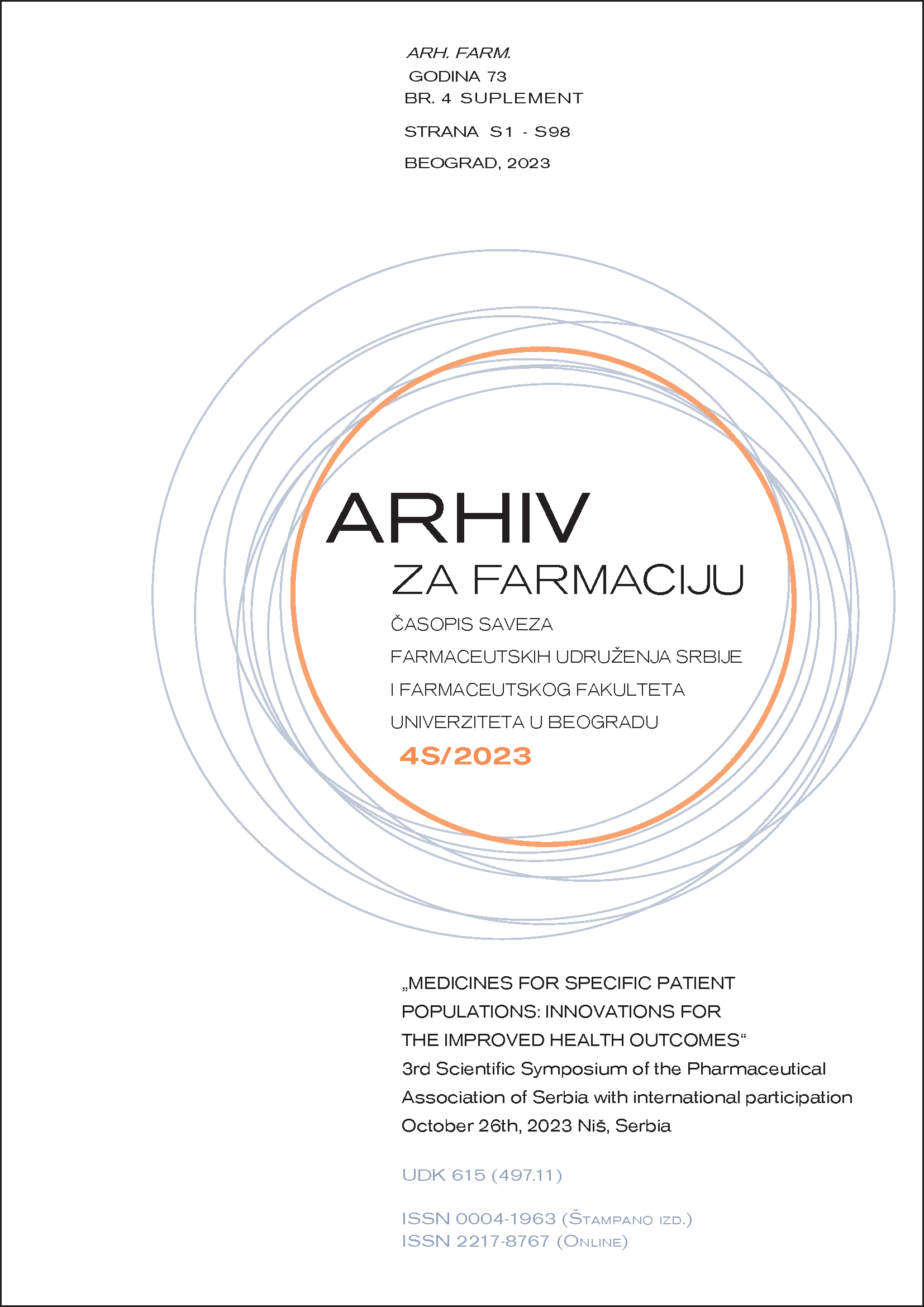TACKLING THE CHALLENGES OF PHARMACOTHERAPY IN GASTRIC BYPASS PATIENTS: PREDICTION OF ORAL DRUG ABSORPTION
Abstract
The prevalence of obesity has increased in recent years, and gastric bypass (bariatric) surgery may be the best treatment option for patients with severe (morbid) obesity (1). Yet, bariatric patients often suffer from concomitant diseases that require pharmacological treatment. In this context, special attention should be paid to oral drug dosing, as bariatric patients may need adjusted pharmacotherapy in terms of drug, dose/dosing regimen and/or dosage form selection (2,3). Namely, altered physiological conditions after bariatric surgery can markedly affect dissolution and absorption of orally administered drugs, depending on drug properties and the type of bariatric procedure. In addition, currently suggested approaches for oral drug administration in bariatric patients, such as crushing tablets or opening capsules (when permitted), generally fail to address the issues related to poor drug absorption, resulting in therapeutic failures. An alternative to tackle these challenges is physiologically based biopharmaceutical modeling (PBBM), a computer-based tool that relates drug and dosage form properties to specific physiological conditions, thus allowing prediction of drug bioperformance in a target patient or population group. This presentation will illustrate the concept and implementation of PBBM modeling for special patient population, focusing on the examples describing the interplay between drug-specific and physiologically relevant parameters that determine drug performance in vivo. The selected examples will demonstrate how PBBM predictions can be used in conjunction with in vitro data on drug properties to answer clinically relevant questions, such as selecting appropriate drug therapy in bariatric patients (4,5).
References
1. Carlsson LMS, Sjöholm K, Jacobson P, et al. Life expectancy after bariatric surgery in the Swedish obese subjects study. N Engl J Med. 2020;383(16):1535-1543.
2. Guedes BL, Montanha MC, Teixeira JJ, et al. Clinicians' prescribing practices for bariatric surgery patients: is there an issue? J Clin Pharm Ther. 2015;40(1):104-109.
3. Kingma JS, Burgers DMT, Monpellier VM, et al. Oral drug dosing following bariatric surgery: General concepts and specific dosing advice. Br J Clin Pharmacol. 2021;87(12):4560-4576.
4. Porat D, Dukhno O, Vainer E, Cvijić S, Dahan A. Antiallergic treatment of bariatric patients: Potentially hampered solubility/dissolution and bioavailability of loratadine, but not desloratadine, post-bariatric surgery. Mol Pharm. 2022;19(8):2922-2936.
5. Porat D, Dukhno O, Partook-Maccabi M, Vainer E, Cvijić S, Dahan A. Selective COX-2 inhibitors after bariatric surgery: Celecoxib, etoricoxib and etodolac post-bariatric solubility/dissolution and pharmacokinetics. Int J Pharm. 2023;645:123347.

